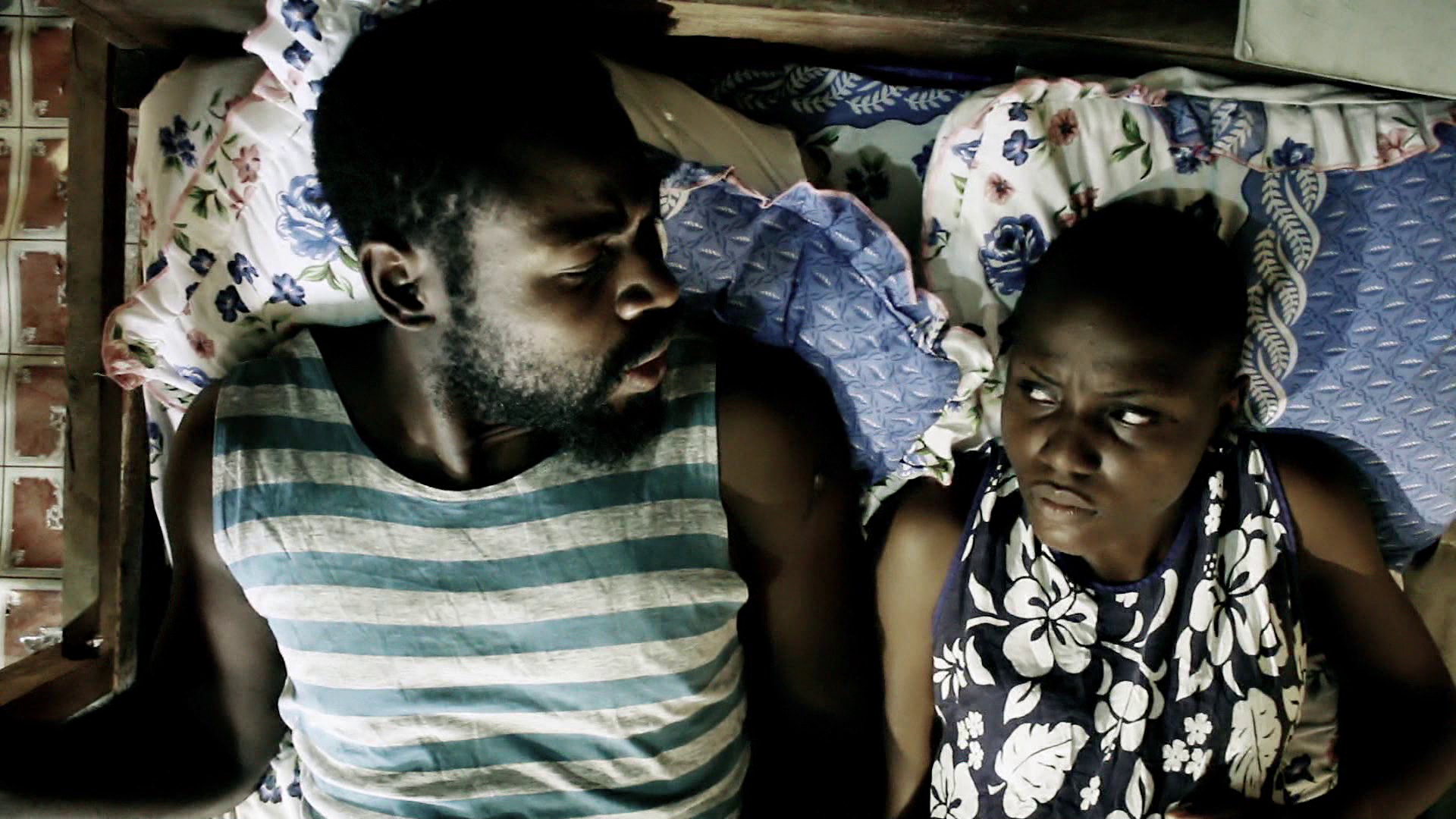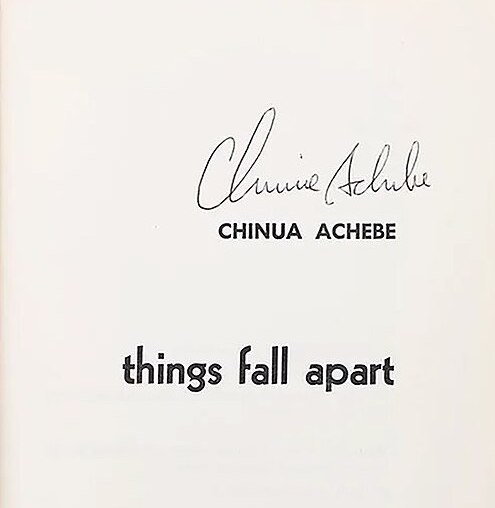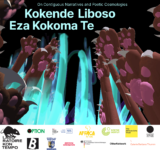Dzekashu MacViban
Dzekashu MacViban profiles Eka Christa, showing how her style eschews stereotypical narratives and goes for stories which are simple, delirious, funny, and highly reflective of the Cameroonian society.
 Anurin Nwunembom (left) Eka Christa (right) in Beleh
Anurin Nwunembom (left) Eka Christa (right) in Beleh
Eka Christa is not afraid to tackle challenging roles; she’s been an enraged neighbor, a mother ready to do anything for her dying daughter, and a maltreated pregnant woman, among others, on screen. But it is as a director that she has had a greater impact, by avoiding stereotypical narratives and going for stories which are simple, delirious, funny, and highly reflective of the Cameroonian society. Her path has not been an easy one— from studying Accounting in university, which she later turned her back on, in favor of her true passion, to getting her first role in 2006, and ending up as a director.
A self-taught actress and director, Christa forms part of a new generation of actors and directors who are imposing a new aesthetic vision; a welcome direction in an industry which, far from its golden age, which was in the 70s, is languishing in the shadow of Nollywood, and the fact that some Cameroonian directors look to Nollywood for inspiration, rather than to their roots does not help.
Christa had always wanted to be an actress, but due to the paucity of movies in Anglophone Cameroon, and the divided movie scene— a shadow of our colonial legacy— film-makers were not very accessible. Then one day a friend told her about an audition organized by a movie director, Bill Mosah, for his film, Break-In, for which she auditioned and was cast to play a support role. That was her acting debut and on that set she learnt the joys and frustrations that come with the job. Looking back at that moment, Christa says “I loved it! I didn’t want to do anything else … I don’t want to do anything else.”
After a while, she realized that she wasn’t interested in the kind of scripts that came her way; scripts which were not too challenging, and some of them were copied from successful Nollywood movies. In an interview with Katherine Kennedy at Akademie Schloss Solitude in Stuttgart, Germany, Christa said “…I wanted more from the genre. I felt that film was a tool we could use to address some of the issues we are facing in our country.” After a while she tried writing and directing her first short film, but it didn’t make it out of post. It was hard because she hadn’t been to film school and had no experience, but she wasn’t discouraged.
She read as much as she could about film-making, bought books on the subject and read a few blogs. It took her a while to find what she was looking for, because she found so much information and from the beginning she wasn’t sure what she was looking for, but once she had a focus, things became easier. She continues to read even today.
Getting to know Achille Brice (a Cameroonian film-maker who’d had exposure through the Durban Talent Campus, Berlinale Talent Campus, and his residency at the Akademie Schloss Solitude) had an influence on her career path. She says Brice helped the film-maker in her more than the actress, by always being available and willing to share ideas and resources. When she told him that she wanted to become a movie director, he pointed her in the right direction. He assisted and mentored her as they made Doormat, a six-minute short film which was her directorial debut, released in 2012.
Doormat is a short mime movie which focuses on the story of a university student, Annie, whose neighbors insist on using her doormat to clean their muddy feet, and what happens when she finally decides to stand up for herself. The film silently builds into an unavoidable climax when she decides to stand up for herself. Christa’s character, Annie, is taciturn, but occasionally given to bouts of rising anger which her unmistakable facial expression do not hide. Indeed, the facial expressions of the characters accompany the plot in building tension in this short film.
In a way, this short movie highlights a lot of the characteristics of Christa’s style, which pervade her other movies, notably, an eye for social stories which are usually overlooked, an aesthetic marked by realism and urbanity of tone, as well as the desire to break genre boundaries and experiment. The result is usually a funny, intense and original story, all of which can be found in Beleh, the second short film she directed. Another dimension to her movies, which one can notice if one looks closely, is the fact that they can be interpreted as allegories of something much bigger than what they seem to highlight.
When Doormat was complete, Achille encouraged Christa to apply for the Talent Campus Durban, which she did, and got selected in 2012. The Durban experience gave her the foundation on which she built her career as a film-maker.
As an actress, Christa admits she has highly been influenced by Meryl Streep, but it is as a director that her influences are legion. Some of them include the Austrian filmmaker, Michael Haneke, and Iranian filmmaker, Abbas Kiarostami. “Haneke’s film, Amour, left an indelible impression on me.” She says. She admires their styles and hopes to achieve a “modicum of the simplicity they are able to achieve in their films.” She recently started reading about African cinema and she came across names like Ousmane Sembene (who is considered to be the father of African cinema), Souleymane Cisse, Sarah Maldoror, Djibril Diop Mambety, and respected Cameroonian filmmakers like Jean-Marie Teno, Jean-Pierre Bekolo and Bassek ba Khobio.
Beleh, the second short movie Christa directed, in 2015, carries with it many of the elements of her directorial style, noticeable in Doormat, but more accomplished, such as an eye for relevant everyday social stories, which are borderline delirious and funny, a minimalist approach, and an experimental realism which fringes on magical realism. Perhaps, what stands out the most is the verisimilitude of the tone— the language of the movie is Pidgin English, a Cameroonian creole which is used extensively in Anglophone Cameroon, especially in the market.

The movie relates a few days in the life of Ekema (Anurin Nwunembom), a man who maltreats his pregnant wife Joffi (Eka Christa) until he has an unimaginable experience which makes him understand what his wife is going through. The movie challenges gender roles and patriarchal assumptions by subverting the notion that the man is the head of a family, a premise which is taken even further by other occurrences in the movie. Beleh has been on the selection list of festivals in several parts of the world, and has as well been featured on TV5 Monde and TV5 Afrique. Prior to its screening on TV5 Monde in March 2014, Beleh won the Best Short film at the 2013 ZAFAA awards in London, and as well had a Special Jury Mention at the African International Film Festival in Calabar, Nigeria.
So far, Christa has collaborated with Achille on all of her projects, as well as with other members of the Core Unit Group; Anurin Nwunembom, Yibain Emile (Ancestor) and Willston Muluh. She has recently directed another short film, Alma, which is now in post-production and should be released into the festival circuit in May 2015. It focuses on domestic violence.
Christa is part of a new school of Cameroonian movie directors, who have emerged in the social media and internet age, and have an alternative look at cinema, from crowdfunding methods (Theiry Ntammack, Victor Viyuoh), to being self-taught and experimental (Achille Brice).Other directors who can be as well considered part of the new school include Françoise Ellong (director of W.A.K.A, who was part of the jury during the Pan-African Film Festival in France), and Agnes Yougang among others.
These directors place aesthetics and individual style over mass appeal productions, and are constantly improving their craft because of their desire to break new ground and their exposure to workshops and festivals.
The cinema industry in Cameroon is a struggling one; there are no movie theatres (except those found in foreign cultural centers— the French Cultural Centre, Goethe Institute etc), the government’s smidgen efforts to fight piracy are ridiculous, and the industry itself cannot agree on a name— Collywood, Camwood, and CFI (Cameroon Film Industry) are some of its names.
Johnnie MacViban traces what he considers to be the wilderness of Cameroon cinema to the demise of FODIC (National Fund for Cinematographic Development), created in the 70s, in “Low Ebb for Cameroon Cinema” when he opines that after FODIC’s creation, “Names of producers like Daniel Kamwa, Arthur Si Bita, Georges Anderson, Alphonse Beni and Bassek ba Khobio started becoming household names. As the years rolled by, something went wrong with FODIC. There were reports of embezzlements of funds; producers came up with plausible scripts, took funding and disappeared into oblivion. Thus the death nail was hammered on FODIC and it went bankrupt and closed shop. And so began the wilderness for Cameroon’s cinema.”

But the cinematography landscape is gradually changing, and Cameroonians are gradually believing in their potential to tell their own stories, a situation which gives hope. Actually, many recent Cameroonian movies by the ‘New School’ of directors have been getting a lot of attention during festivals all over the world— Ninah’s Dowry (directed by Victor Viyuoh) being a very good example, and for which Christa was nominated for the AMAA 2013 Prize For Best Actress in a Supporting Role.
Christa is not yet a household name, but she is on the right path. From her first role in a movie which was in 2006, right up to 2015, she has featured in 9 movies, written scripts for 5 movies and directed/produced 4 movies. Throughout the course of her career, she has faced a few problems as a director, but she remarks that none of them are because she is a female director. Concerning her creativity, she points out that it is something she may never understand, but its ethereal nature doesn’t get in her way, it rather feeds her muse.







Good profiling.Though not a household name yet, what advice does this obviously talented actress and director have for aspiring directors and actors especially those in Cameroon considering the fact that the industry is still laying its foundation?
this great..